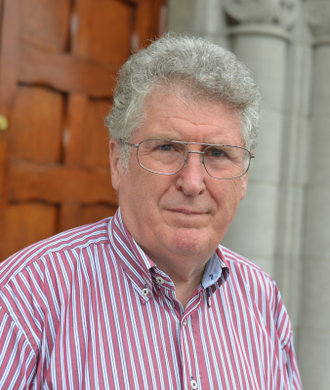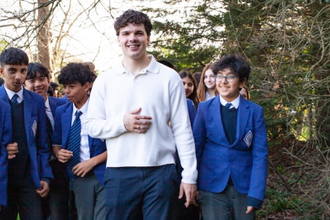The dangers of Artificial Intelligence (AI)

Fr Sean McDonagh
In the beginning of May 2023, Geoffrey Hinton, often portrayed as the godfather of artificial intelligence (AI) quit his job and warned about the growing development in that technology. His pioneering work and research on neural networks and deep learning paved the way for the current systems such as ChatbPT. In artificial intelligence, neural networks are systems that are like those found in the human brain, both in the way they learn and process information. This allows AI to learn from experience in the same way as a human being would. This is called deep learning.
In 2021, I wrote a book, Robots, Ethics, and the Future of Jobs. And I pointed out how powerful AI was in 2017. It recognises patterns and finds relationships in data that are so complex that no individual human being or group of human beings would be able to see these connections. In January 2017, Libratus, an AI program designed to play poker, was entered in a twenty-day-long tournament against four of the best pokers players in the world. Librantus won. The algorithms that powered Libratus were designed to have applications beyond playing cards.
As I point out in the book, AI is being used in agriculture, finance, banking, insurance, healthcare, education, policing, retail, construction trade, military strategies and in the care of young people and the elderly. Many teachers are aware that some students are using AI to write their term papers and thesis.
It is important to look back at the past two centuries and a half to fit this new powerful technology of AI into the context of the industrial revolutions which have shaped our modern world.
The first Industrial Revolution, driven by steam, began in Britain after the 1750s. While it destroyed jobs on farms and the rural-based clothing business, manufacturing industries created many new jobs in the factories that sprang up in cities such as Birmingham and Manchester. It also gave rise to a rail network, which helped move goods and people around Britain. Growth in international shipping made it possible for the British industrial goods to be sold around the world.
The second Industrial Revolution began in the 1860s, when oil, gas and electricity were harnessed to power industry and transport in Britain, the Unite States and Europe. In the early twentieth century, Henry Ford developed assembly-line technology in his car manufacturing industry in Detroit. This technology greatly improved workers' productivity. Ford believed that his workers would not only manufacture cars, but that they would also buy cars themselves, further stimulating the market.
The third Industrial Revolution began in the 1960s which the arrival of the computer. This, too, had a major impact on society, as workers moved from purely mechanical technology to the digital era in the 1960s, 1970 and 1980s.
The fourth Industrial Revolution is being driven by technologies such as AI, robots, drones, and 3D printing. It appears to me that the disruption brought by our current high-tech revolution will be like that caused by the first and second Industrial Revolutions because it redefines again the very nature of work.
In his book, Why the Future is Workless, Tim Dunlop predicts that these technologies will replace people in the workforce, and lead to significant levels of unemployment and impoverishment for many people. Geoffrey Hinton believes these technologies can do wonderful things, but he is also aware that there is need for regulation. According to him, it is essential that the world invests urgently in AI safety control. He is not the only one calling for regulations. In March 2023, an open letter co-signed by many people in the AI field - including the tech billionaire Elon Musk - called for a pause on all developments more advanced that the current version of the AI chatbot. In the current world this would not be an easy thing to achieve. Even if everybody in the United States stopped working to improve AI, the Chinese and India could development their tech industry during this time.
Many people believe that these new technologies will push many people back into the situation which prevailed during the early part of the 19th century when there were no jobs available for people. Those formulating regulations must include, not just people who understand AI technologies, but sociologists and philosophers.
The reason that there have been few regulations to date is that large tech corporations have huge influence on politicians in many countries across the globe. Politicians must challenge the giant companies on several issues, especially workers' rights and users' rights.
Many of these corporations are monopolies that should be broken up. Scientists for Global Responsibility, a campaigning group comprising of scientists and engineers, surveyed its 750 members about the effects that AI would have on their future. Almost all their members felt that AI would entrench and deepen inequality in society, as more and more power and benefits would flow to the large digital corporations rather than to the ordinary citizen.
The Irish Times journalist Karlin Lillington asks: "how much longer do we allow such monolithic speech orbiters - which they unquestionably are - to operate without limitation or responsibility?
Sean McDonagh is a Columban priest based in Ireland.


















